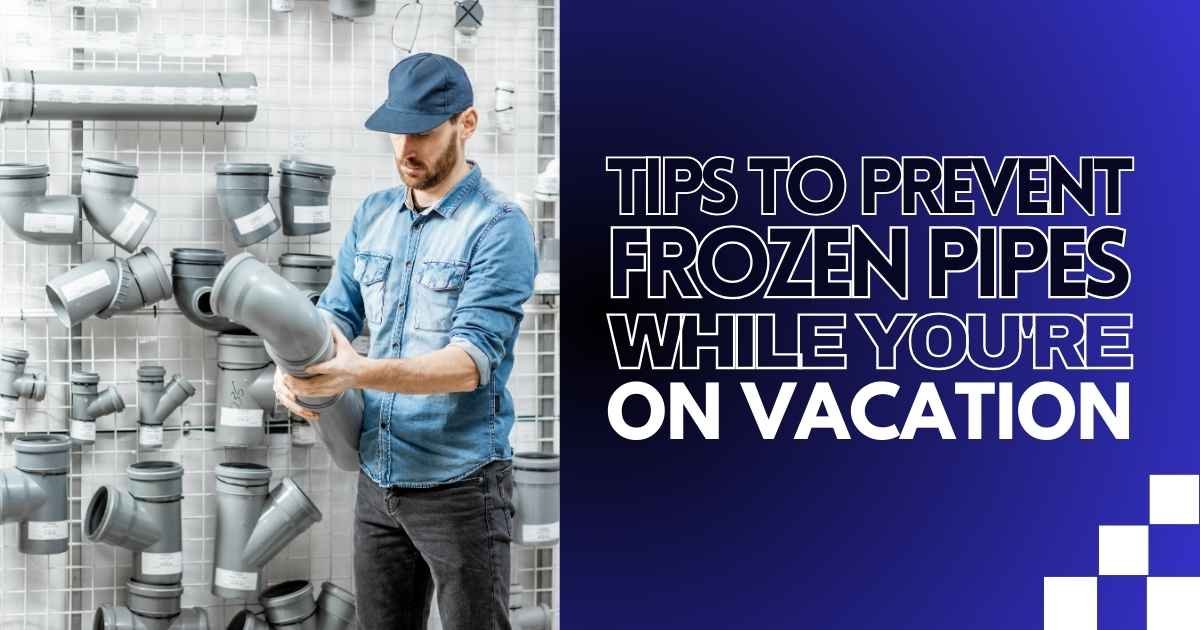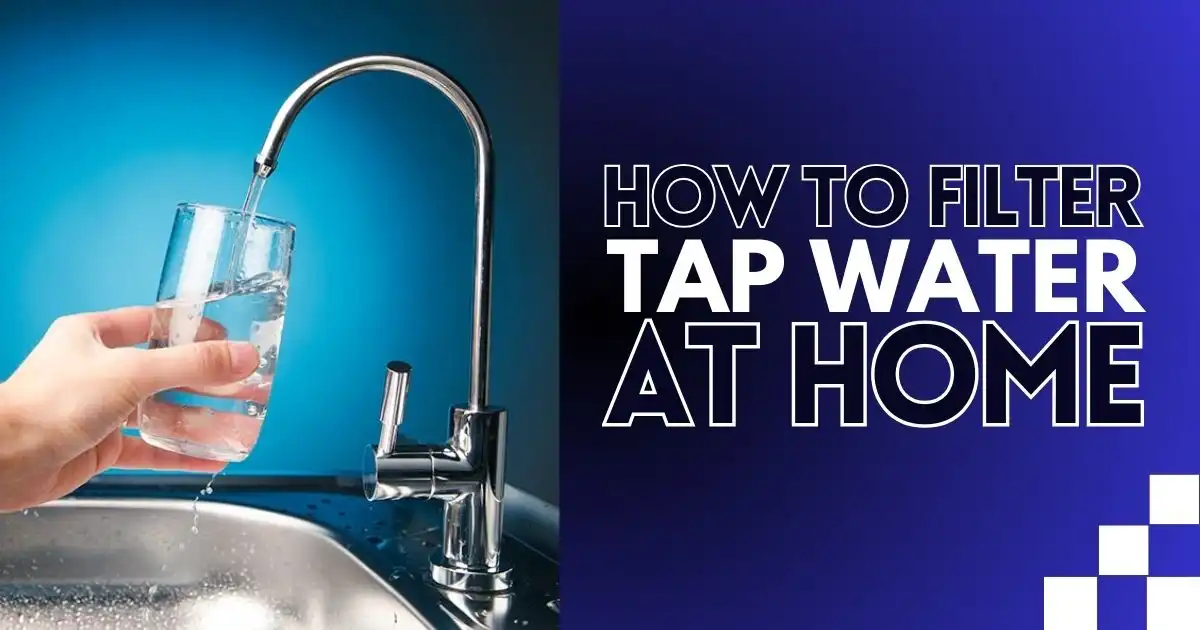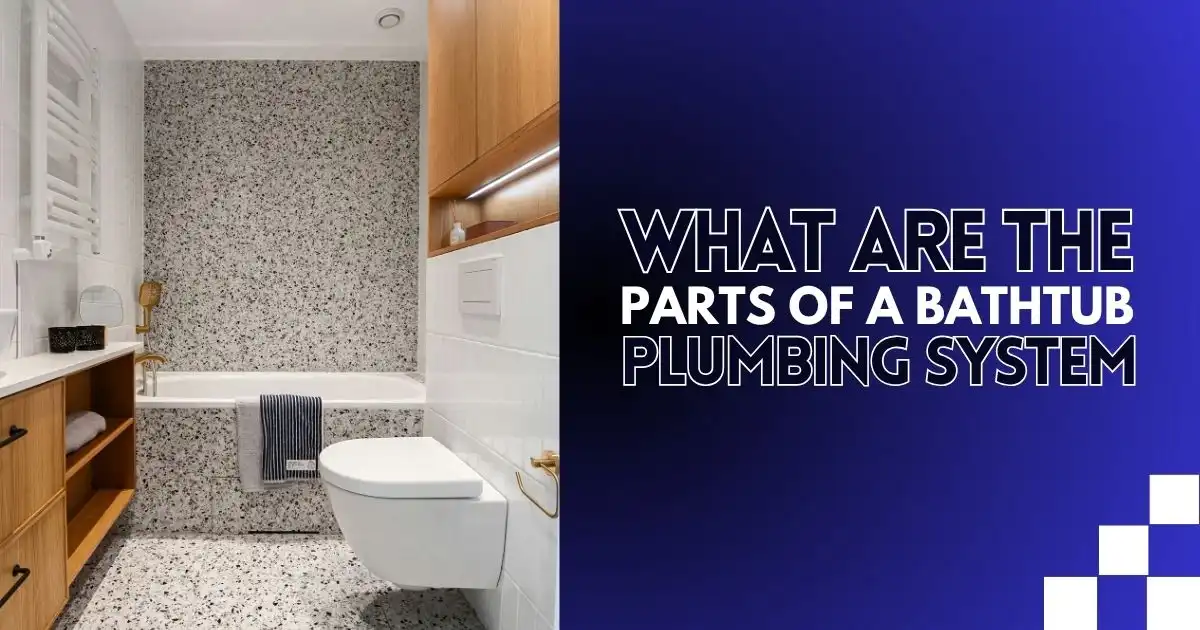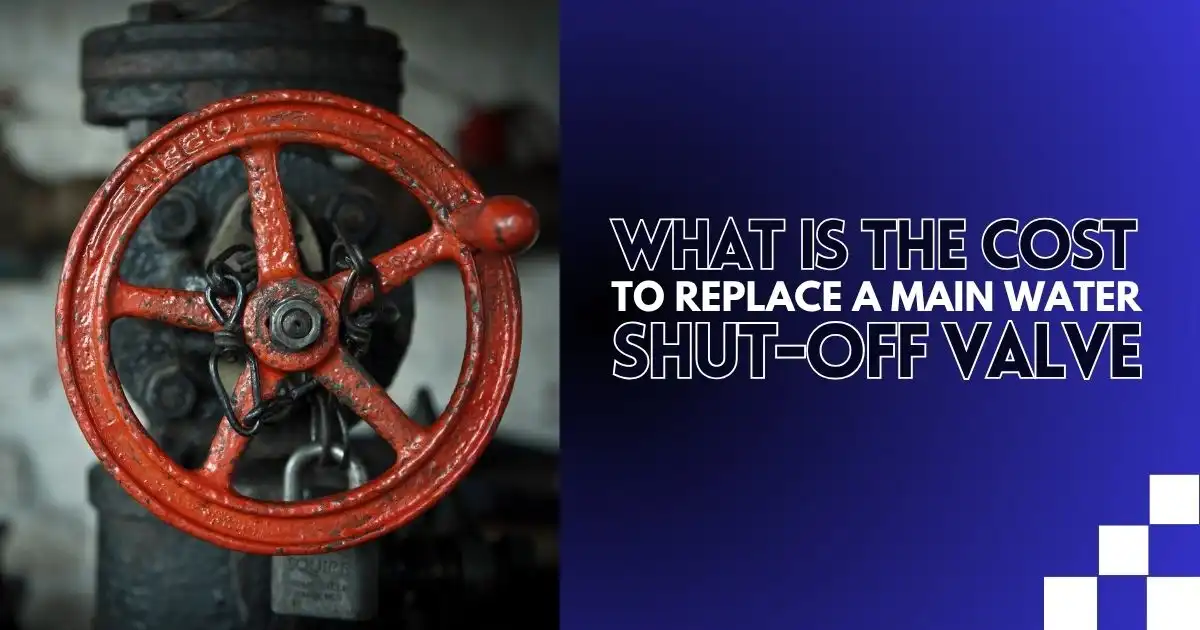You’re ready for a well-deserved vacation, excited to get away from the daily routine and enjoy some time off. But as you pack your bags, a new worry pops into your head—what if the cold weather back home causes your pipes to freeze?
A burst pipe could mean coming back to a flooded house, costly repairs, and a whole lot of stress. It’s easy to forget about your home’s plumbing when you’re getting ready for a trip, but taking a few precautions before you leave can save you from this nightmare.
What are the Signs if Your Pipes are Frozen?
If you think your pipes are frozen, here’s what to look for:
- No water from your faucet: If you turn on the faucet and no water comes out, or just a small trickle, it’s a sign your pipes might be frozen. This happens because the water inside the pipes has turned to ice, blocking the flow. It’s important to act fast. If you’re unsure if freezing is the cause, call a plumber for help.
- Frost on pipes: If you see frost or ice on the outside of a pipe, that’s a strong clue it’s frozen inside too. Check exposed pipes in places like the basement, attic, or near exterior walls, as these are more likely to freeze.
- Strange smells: If you notice a weird or strong smell coming from your drains or faucets, it might mean a pipe is frozen. When a pipe freezes, it can block airflow, causing bad odors to come back up into your home. This could also be caused by other blockages, but in freezing weather, it’s likely due to frozen pipes.
- Water damage: Frozen pipes can crack or burst, causing water to leak into your home. You might notice signs like peeling wallpaper, damp spots on walls or ceilings, musty smells, or mold. If you see these signs, it’s important to check for frozen or burst pipes right away to avoid further damage.
8 Tips to Prevent Frozen Pipes While You’re on Vacation
Cold weather can cause pipes to freeze and burst, leading to expensive damage. Follow these 8 simple tips to prevent frozen pipes and enjoy your trip with peace of mind.

1. Let Water Run and Keep the Heat On
If you can’t drain your pipes completely, let a faucet drip. Even a small, steady drip keeps the water moving and helps prevent freezing. This is especially important for pipes in colder parts of your home, such as the basement or attic. Keeping your heat set at 55°F or higher is crucial, especially when temperatures in Las Vegas occasionally drop below 20°F during winter.
You might think Las Vegas is all desert heat, but cold spells do happen, especially at night. Opening cabinet doors under sinks will also help warm air circulate around the pipes. The slight increase in your heating bill is worth it compared to the cost of repairing burst pipes and water damage.
2. Turn Off the Water and Drain the Pipes
To avoid any risk of freezing while you’re away, turning off the main water valve is a smart move. You can typically find the valve near your water heater, in the basement, or sometimes in a utility closet. Once it’s off, drain the water by opening all faucets and flushing toilets.
If you’re concerned about leaving your house empty for a long time, this step will give you peace of mind. It’s also a good idea to check if your home has a fire sprinkler system because some systems need to stay pressurized. If you have sloped ground, gravity may naturally help drain water from your pipes, making it easier.

3. Protect Outdoor Installations
Even in Las Vegas, outdoor plumbing can freeze if temperatures dip low enough. Drain your garden hoses and disconnect them from outdoor faucets. Make sure to shut off the valve that supplies outdoor water to prevent water from sitting in the pipes and freezing.
You can easily protect your outdoor faucets with foam faucet covers, which are inexpensive and available at most hardware stores. Also, if you have a backflow preventer (a device often required for irrigation systems), consider wrapping it in an old towel or blanket for extra insulation.
4. Add Insulation
Exposed pipes are the most vulnerable, especially in unheated areas like your garage, attic, or basement. Pipe insulation is easy to install and can be found at most hardware stores. For an extra layer of protection, you can also use heat tape or a heating cable that wraps around the pipe to keep it warm during cold spells.
It’s also a good idea to seal any cracks or gaps in the walls near pipes that could let cold air in. Gaps around doors and windows should be checked and sealed as well, as this can help keep your home warmer overall, reducing the chance of frozen pipes.
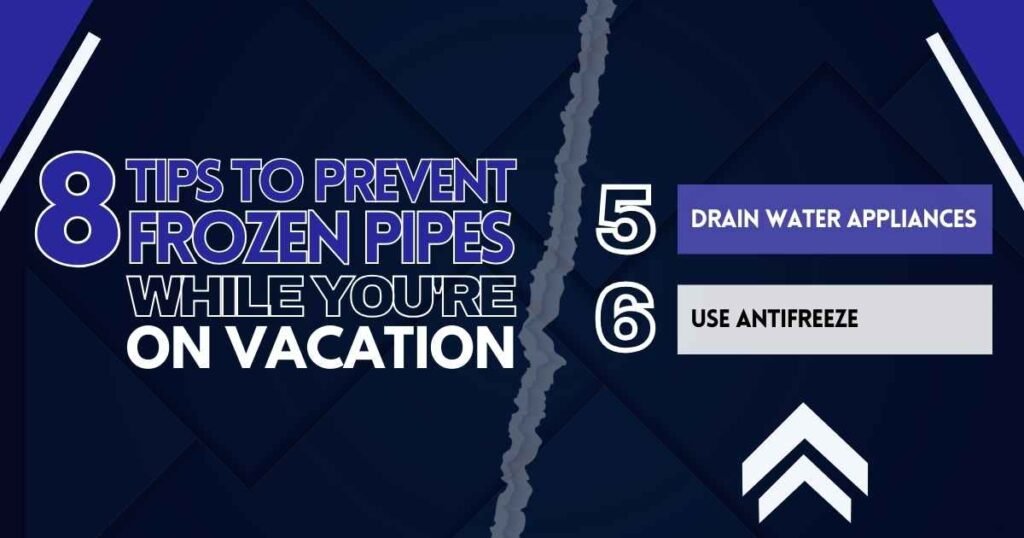
5. Drain Water Appliances
Before you leave, don’t forget about your water-using appliances like washing machines, dishwashers, and water heaters. If water is left inside these appliances, it can freeze and cause damage.
Start by unplugging them and draining any remaining water from hoses and tanks. Be sure to check the user manuals for each appliance to ensure you’re following the proper draining procedures. For example, water heaters have a special valve to drain the tank, which should be used if you’re going to be gone for an extended period.
6. Use Antifreeze
RV antifreeze is a great option for protecting your plumbing while you’re on vacation. It’s non-toxic and safe for home use, unlike car antifreeze, which is poisonous. Pour a small amount of antifreeze into toilet bowls, tanks, sinks, and bathtubs to prevent any remaining water from freezing.
If you have a septic system, check that the antifreeze you use is septic-safe. This simple step can prevent costly repairs to your toilets and drains if temperatures drop while you’re away.
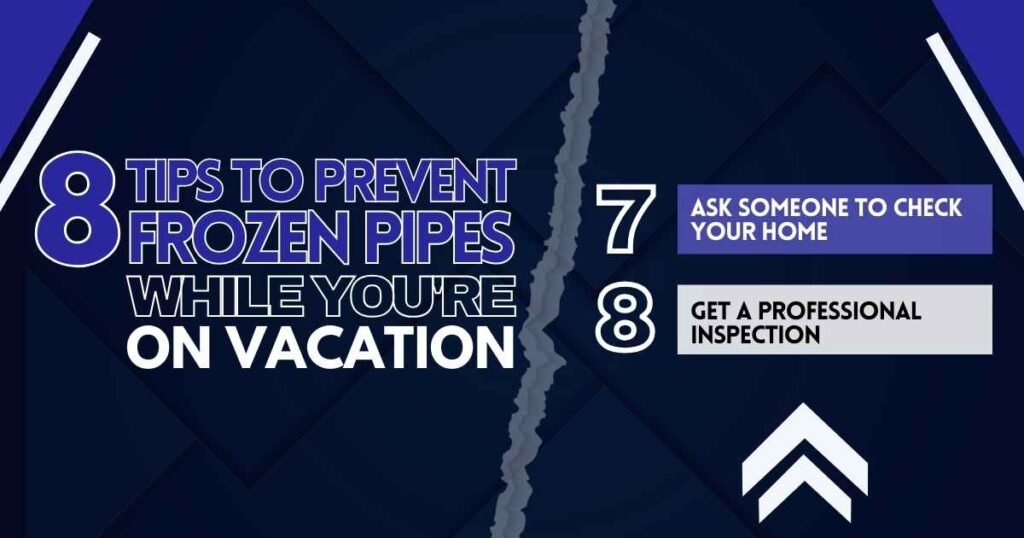
7. Ask Someone to Check Your Home
If you’re going to be away for more than a few days, ask a neighbor, friend, or family member to check on your home. Even in Las Vegas, temperatures can surprise you, and having someone check in can catch potential issues before they become major problems.
They can make sure the heat is working, water is running properly, and there are no signs of frozen pipes. Ideally, they should stop by every couple of days. If you have a smart thermostat, you can also monitor the temperature of your home remotely, which is an added layer of protection.
8. Get a Professional Inspection
Hiring a plumber before you leave can provide peace of mind. They can check for weak spots in your pipes and offer frozen pipe prevention solutions to protect them from freezing, especially in places like Las Vegas where cold snaps are rare but possible.
Some plumbers also use compressed air to fully drain your pipes, leaving no water behind to freeze. Spending $200 on an inspection may seem like an extra cost, but investing in frozen pipe prevention can save you thousands in repairs if a pipe bursts while you’re away.
Prevent Frozen Pipes Before It’s Too Late
Coming home from a vacation to find frozen or burst pipes is a disaster no one wants to face. Many people don’t think about their pipes until it’s too late, but avoiding this costly headache is easier than you think.
Following these 8 simple tips, you can protect your home and avoid expensive repairs. Want extra peace of mind? Vegas Plumbing Pros is here to help with expert inspections and solutions to keep your pipes safe from freezing. Don’t wait until a problem happens—contact Vegas Plumbing Pros today and protect your home while you’re away!
FAQs
How to keep pipes from freezing when out of town?
To prevent frozen pipes while you’re away, let a faucet drip slightly to keep water moving. Keep your home heated to at least 55°F, and open cabinet doors to allow warm air to reach your pipes. Also, consider insulating exposed pipes in unheated areas.
How to drain water pipes to keep from freezing?
First, turn off the main water valve. Then, open all faucets and flush toilets to drain the remaining water from the system. For outdoor faucets, disconnect hoses and drain any water left inside.
How to winterize plumbing in a vacant house?
Turn off the main water supply and drain all pipes by opening faucets and flushing toilets. Use antifreeze in toilets, sinks, and tubs to prevent any remaining water from freezing. Insulate exposed pipes and consider having a professional plumber winterize your home.
How to drain pipes to prevent freezing?
Start by turning off the main water valve. Then, open all faucets to let water flow out. Flush toilets to empty the tanks. This helps prevent frozen pipes by ensuring no water remains, which can freeze and cause damage.
